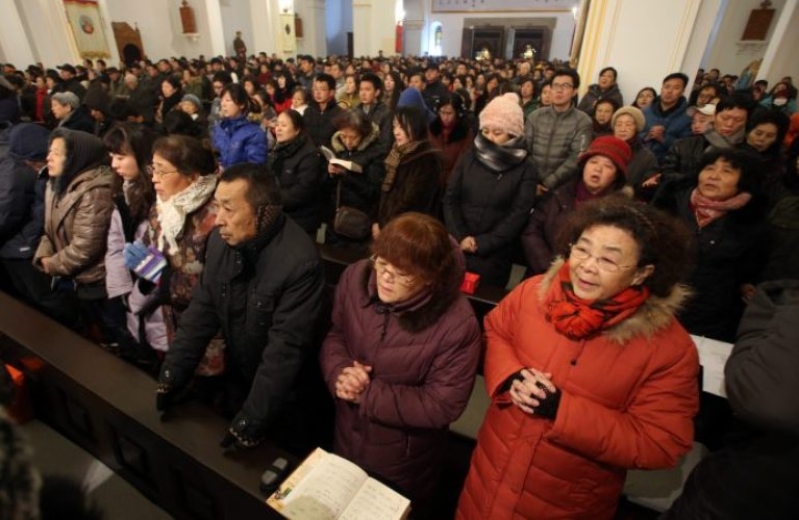
China Aid's 2016 Annual Persecution Report details a seismic shift in the Chinese government's approach to religious policy that is expected to lead to further persecution.
The report's core subject tracks a deviation in the Chinese government's ideological approach to religious management. During the National Conference of Religious Work held in April 2016, Chinese President Xi Jinping emphasized the importance of religions "persistently following the path of Sinicization," and subordinate government departments adopted the policy as a catalyst for many persecution attempts. Previously, the Chinese Communist Party (CCP) focused its efforts on encouraging religions and socialism to mutually adapt, a policy introduced by former President Jiang Zemin.
Despite China's insistence that Sinicization is an integral ingredient in the harmonization between church and state, the policy pivots on the government's assumption that other countries are using religions based abroad to undermine its authority. Therefore, actions carried out under this mantra target the activities of religious institutions and subject them to government oversight, effectively forcing them to fit the agenda of the CCP.
This forces religious practitioners, especially Christians, to choose between compromising their deeply-held beliefs and risking being treated as violators of the law.
In an attempt to implement this Sinicization, local government departments across the country drafted and carried out work plans that took aim at house churches. Often, these departments identified unregistered house churches and coerced them to join the government-monitored Three-Self Patriotic Movement (TSPM) by threatening them with forced closure.
In addition to these attempts to tailor Christianity, China continued to persecute individual Christians at a frequency unseen since the Cultural Revolution. Comparing statistics gathered in 2015, China Aid discovered consistent increases across six different categories of persecution in 2016. These include: number of persecution cases (up 20.2 percent), number of people detained (up 147.6 percent), the number of people arrested (up 11 percent), the number of people sentenced (up 30 percent), the number of abuse cases (up 42.6 percent), and the number of people abused (up 69.5 percent).
This data illustrates China's alarming regression into a more Maoist regime, and conditions are expected to worsen this year as the Revised Regulations on Religious Affairs go into effect nationwide. These new regulations seek to further limit religious activity and indicate a catastrophic potential to place more Christians behind bars.
"The key findings of what happened last year and the reports from these first two months of 2017 have shown the situation of religious freedom is rapidly deteriorating," said Bob Fu, founder and president of China Aid. "We call upon both the persecuted faithful in China and the international community to be increasingly vigilant and persevere in facing this harsher year. China Aid will continue to walk closer with the persecuted and oppressed faithful in China by exposing the abuses, encouraging the abused, and equipping the leaders."
The full English version of the 2016 Annual Persecution Report can be read here. While China Aid hopes that someday religious freedom will be available to all, the majority of the reports we receive spotlight the persecution of Christians. As such, the report focuses on the CCP's persecution of Christians and should be read as a sampling of a much more widespread endemic of oppression, rather than a comprehensive analysis.
China Aid writes the Annual Persecution Reports in order to expose China's horrific treatment of people who believe differently from the state, to stand in solidarity with persecuted Christians, and to promote religious freedom, human rights, and rule of law for all.







